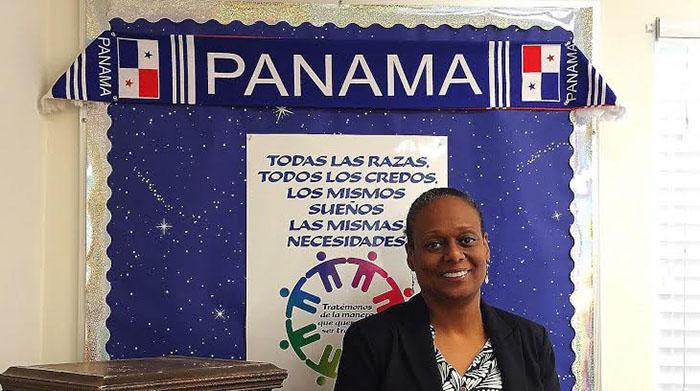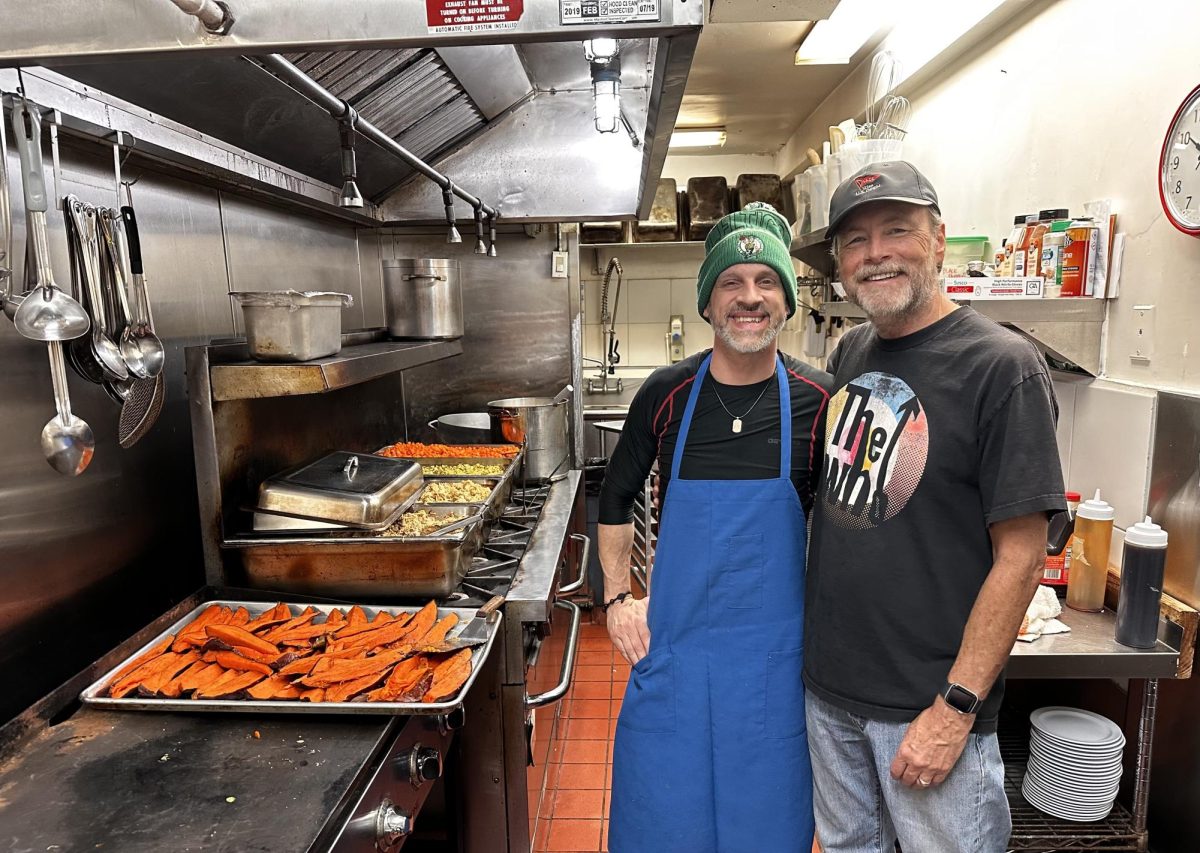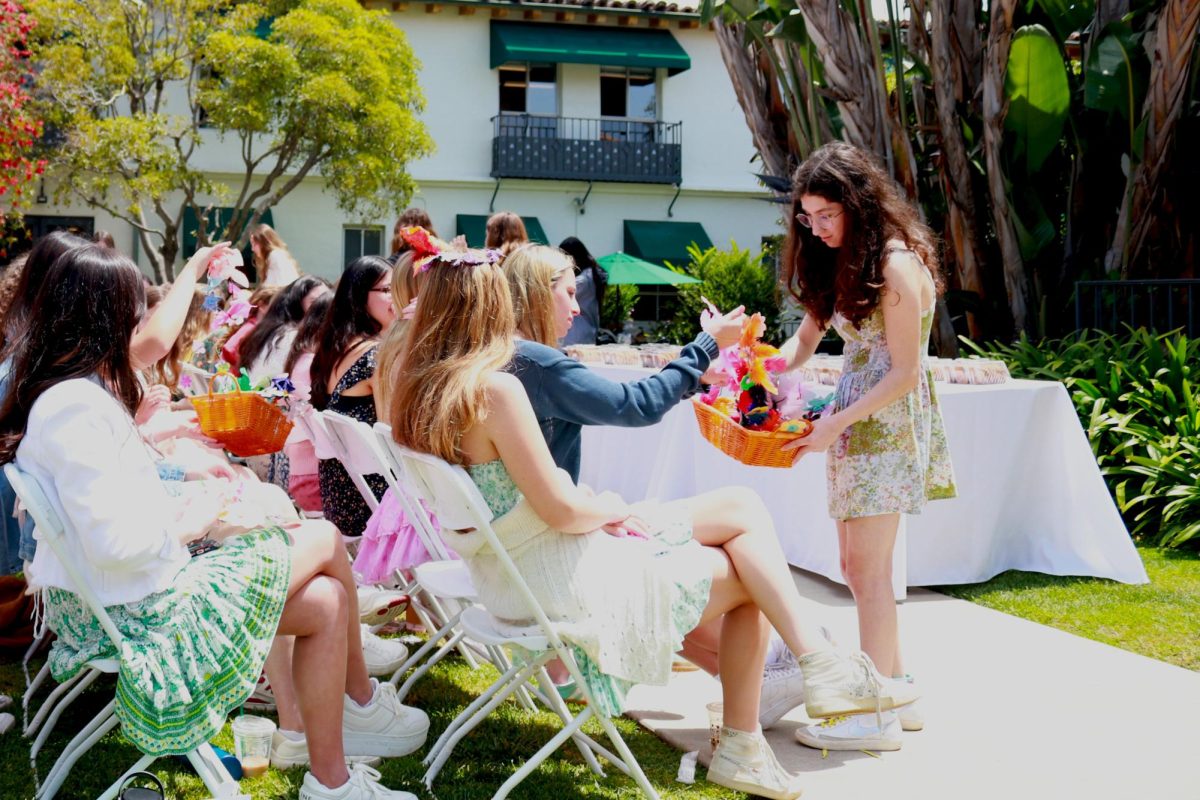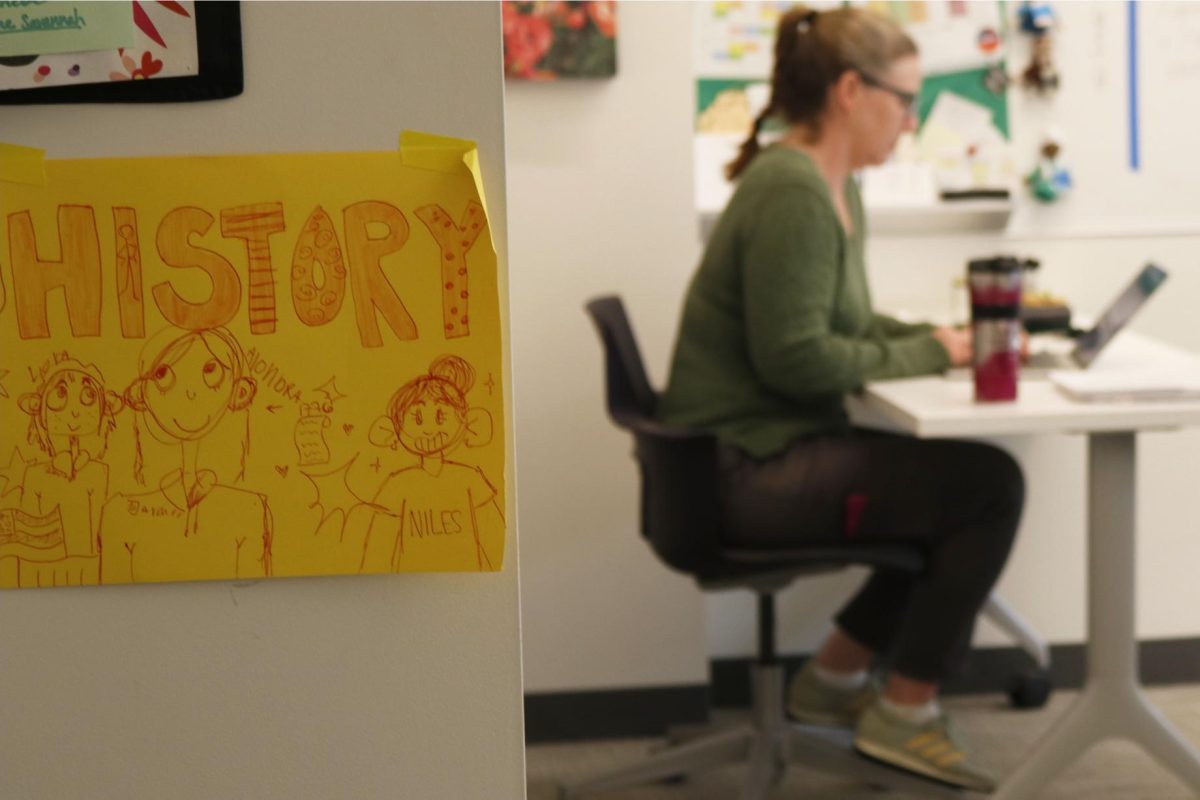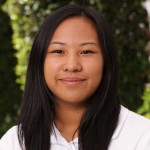When she was 19, La Verne Seales traveled approximately 3,000 miles to California from Panama, where her plans for her future changed forever.
Seales, a new addition to the Archer faculty this school year, teaches Upper School Spanish.
Before moving to the U.S., Seales envisioned becoming a lawyer and working on the treaty between the U.S. and Panama.
“Once I came to the United States, I knew that was not an option, mainly because of who I was… When you’re speaking about law, there’s a certain expectation of what people are supposed to look like, speak like,” Seales said,
I was a Black woman and I had an accent. And those are things that I wasn’t going to be able to change. So I knew instantly that it was not going to work.”
It was the 1980s — Panama was under the dictatorship of Manuel Noriega. Her father decided that because of the oppressive government at the time, they would leave their homeland to come to the USA.
Upon arriving to the U.S., Seales and her family resided in Bakersfield, where she has extended family. She decided to enroll at local university California State University, Bakersfield (CSUB).
“I thought, ‘I’m going to get the easiest major, which is Spanish, and I’ll get my Bachelor of Arts degree and go home,’” she said.
Although she and her family intended to return to Panama when the dictator was overthrown, her family was set back due to her father’s passing after battling cancer.
“My mother decided that she wanted to come to the United States and live with the rest of the family. So from there, I was kind of stuck here and asked myself, ‘What do I do now?’” she said.
According to Seales, one of her professors at CSUB suggested that she consider going to graduate school and attending San Diego State University (SDSU).
“I put in my application and got accepted to San Diego State for their Master’s degree program in Latin American Literature,” she said.
At 22 years old, Seales worked as a teaching assistant at SDSU and taught classes while simultaneously attending graduate school.
While reading various texts considered to be “masterpieces” of the Spanish language, she began to question the representation of indigenous and Black people in Spanish literature.
During her last year of graduate school, the university hired an Afro-Panamanian professor who taught a class on Afro-Hispanic Literature. Seales shared that the class was an “eye-opener”; she realized that “there were Black people and indigenous people writing literature, but their voices were not heard.”
So I decided because of that and many other reasons, to go get my Ph.D,” she said. “I wanted it to be about those voices that nobody ever speaks about.”
According to Seales, there wasn’t a lot of research being conducted on the subject matter in the late 1990s — New York was one of the few cities that had the resources to do so.
Seales travelled to the other side of the country to State University New York at Buffalo (SUNY at Buffalo). There, she decided to get her second Master’s degree in Spanish Literature as well as a doctorate degree in Latin American Literature.
“That’s where one of the experts in Afro-Hispanic literature was and that’s how I ended up in Buffalo in order to work under him for my Ph.D.” she said.
At SUNY in Buffalo, she met her husband who was studying to get his Ph.D. in chemical engineering.
After obtaining her Ph.D., she worked at the university for about 18 years. From there, she and her family moved to PA where she taught at independent school Episcopal Academy.
“I always wanted to come back to California… when I was going to Buffalo, I was very naïve. So I was thinking, ‘California, New York, Buffalo, it’s all the same,’” Seales said.
I was a foreigner and I didn’t realize where I was really going.”
According to Seales, she is adjusted to the US culture, but a lot of it has been forced.
“I always like to bring up Halloween, which is one of my least favorite holidays because of cultural reasons and my background, and it’s not something we celebrate the same way,” she said. “It was one of those holidays where I would just go to the library or turn off my lights.”
“But as I had children, I also had to understand that they were a part of this culture and I had to embrace it, so I always celebrate Halloween, but more of the pumpkins than the witches,” Seales said.
Due to these cultural differences, Seales highlighted some of the difficulties she faces as an Afro-Latina woman based on the stereotypes in the United States.
The fact that I don’t look the part is the main issue. So you have this Black woman that not only speaks the language, but also has the education behind it and that is oftentimes problematic,” Seales said. “Not so much now that I’m teaching high school, but when I was at the university level it was more of an issue than I find it now.”
While moving back to California from the East Coast, Seales said she was “very happy to be here and most of all because I [felt] like I came home.”
“The richness and openness of this area is something that I didn’t find in Buffalo or in Pennsylvania that I value,” she said. “And I’m happy that I’m able to have my kids experience this, the open-mindedness and diversity of Los Angeles.”








